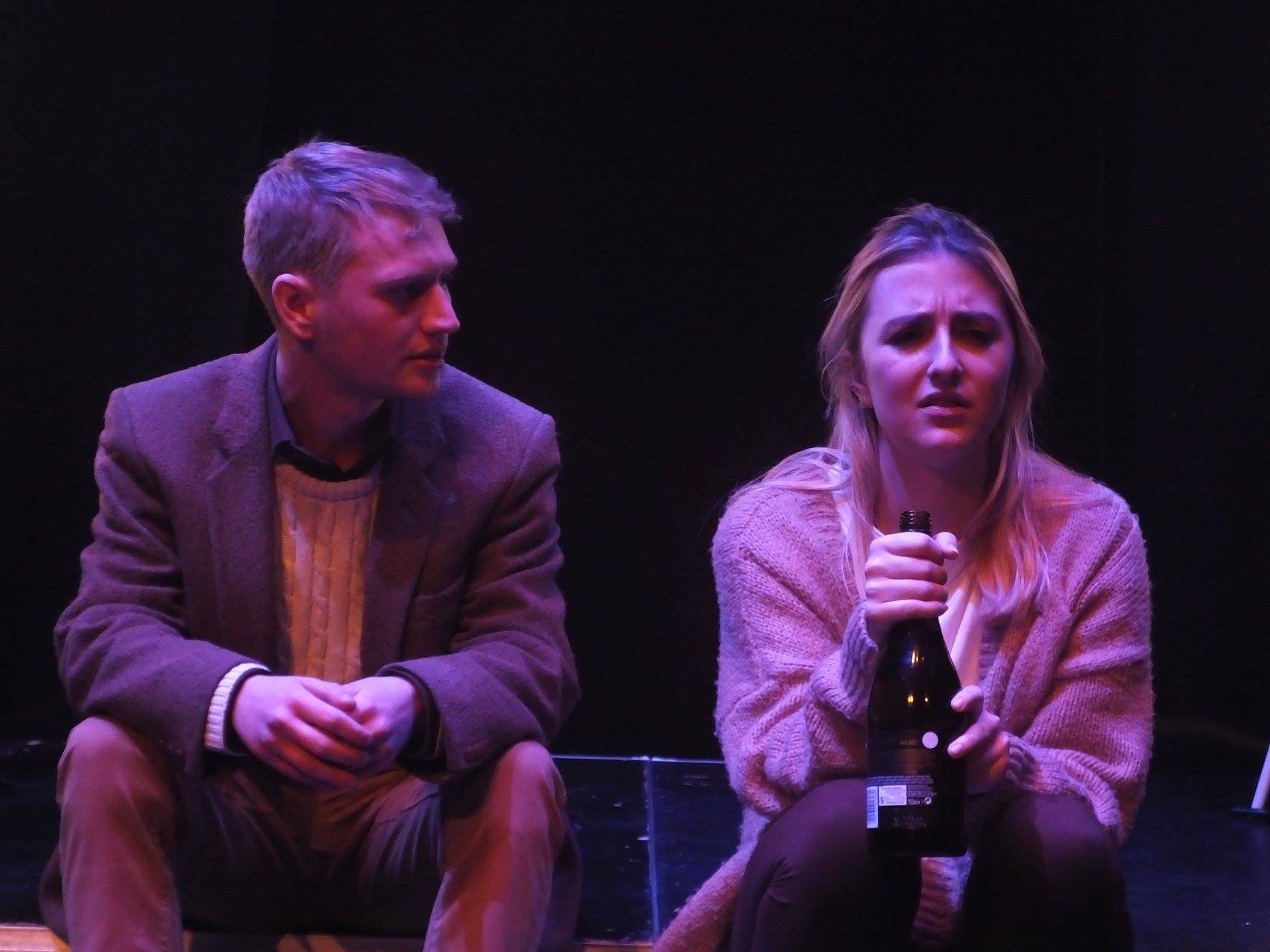“When people have asked me what this show is about, my immediate reaction is ‘Maths!” but Proof isn’t really about maths” Beth Wilson eloquently puts it in her director’s notes on the programme. Family, trust, mental illness, bereavement, all things that Proof is really about, while also being a bit about maths.
This is a play which keeps the audience guessing from the very first scene. It is only part way through the conversation with the severely depressed Catherine (Sophie Botham) and her father Robert (Steve Owens) that we learn the maths professor and genius is dead. Elder sister Claire (Emma Powell) flies in from New York for the funeral, and to persuade Catherine to leave her home and everything she knows. This plan is disrupted by Hal (Tom Currey), a former student of Robert’s that attempts to find something in the heaps of nonsensical work the professor has been writing for years. When Hal actually finds a break-through proof written by Catherine, he implores her to stay.
The production was smoothly adapted from the original American setting of David Auburn’s original 2001 production. An insular play with rarely more than two people on stage at once, the show never felt repetitive or lacked energy. The emotional tension drove the play, dealing with heavy topics without it feeling forced. The audience felt the depths of Botham’s portrayal of despair, as well as Powell’s frustration coming from a place of care. Owens took on the difficult role of the manic with great consideration and care. The play attempts to deal with the darker, less shown and more stigmatised sides of mental illness, and the production handled very sensitively.
The comic relief of the relationship between Catherine and Hal was heart-warming. The chemistry between Botham and Currey left the audience rooting for them, but never overshadowed the other weightier aspects of the plot or Catherine’s potential academic success.
The atmospheric lighting and the swelling score intensified moments of tension or emotional depth. This was added to by the lingering looks the characters gave each other during scene transitions. The cleverly designed set was simple yet effective. I liked the use of the white boards to demonstrate the intellectual talent of Catherine, but also a constant reminder of the effect of Robert’s work on the family. This heightened the impact of the moment when Catherine rubs off the whiteboards, showing her dissolution with everything her father stood for when the other characters reject her work.
Despite the heavy subject matter, Proof manages to offer the audience a hopeful ending. It doesn’t aim to solve all the of the tough questions it poses: the treatment of mental health; whether or not your family knows what’s best for you; or whether we should trust logic over feelings were all left open. However, the play left the audience with enough closure to feel confident that the characters would cope with anything thrown at them.
Chloe Lovatt
Image Courtesy of Nathalie Lloyd-Cope

